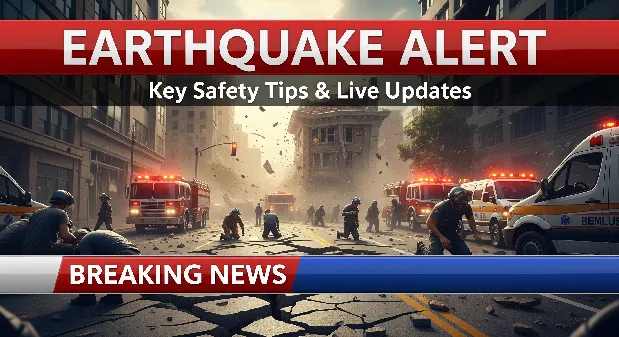Earthquake Alert: Key Safety Tips & Live Updates You Need Now

Earthquakes strike without warning, and knowing how to react can make all the difference. With seismic activity reported in several regions today, thousands of people are searching for reliable, up-to-date information. This article compiles live updates, expert safety tips, and emergency preparedness advice to keep you informed and safe.
🔴 Live Earthquake Updates
- Breaking: Moderate tremors have been recorded in parts of [Region/City] with no major damages reported so far.
- Aftershocks: Authorities caution that aftershocks may follow within hours. Stay alert and follow official updates.
- Transit: Rail and metro services in some areas are running at reduced speeds as a precautionary measure.
- Emergency Lines: 911 (US), 112 (EU), and local emergency numbers remain active. In India, dial 112 for integrated emergency response.
(Check local news or government apps for the latest real-time reports in your region.)
Broncos vs Chargers Recap — Fans Can’t Stop Talking About This
Why Earthquakes Happen
Earthquakes occur when energy stored in the Earth’s crust is suddenly released, causing seismic waves. While the magnitude can vary, even minor tremors can impact buildings, roads, and essential services. Understanding the science behind quakes helps you stay calm and respond appropriately.
Essential Safety Tips During an Earthquake
- Drop, Cover, and Hold On: Get down on your hands and knees to prevent falling. Take cover under a sturdy table or desk, and hold on until the shaking stops.
- Stay Indoors: If you’re inside, don’t rush outside. Stay away from windows, glass, and heavy objects that could fall.
- If You’re Outside: Move to an open area away from power lines, trees, and buildings. Watch for falling debris.
- If You’re Driving: Pull over to a clear spot. Keep your seatbelt fastened until the shaking stops.
- Listen for Official Warnings: Use a battery-powered radio or your phone (if network available) for official instructions.
After the Shaking Stops
- Check yourself and others for injuries. Call emergency services if needed.
- Inspect your home for gas leaks or damaged electrical wiring. Shut off utilities if you suspect damage.
- Be ready for aftershocks. They can be almost as strong as the main quake.
- Stay tuned to local authorities for evacuation orders or relief centers.
- Limit phone calls to emergencies only to keep networks clear for responders.
How to Prepare Before an Earthquake Strikes
Preparedness can greatly reduce the risk of injury. Experts recommend:
- Create an Emergency Kit: Include water, non-perishable food, flashlight, first aid supplies, batteries, and important documents.
- Secure Heavy Items: Anchor bookshelves, TVs, and appliances to walls to prevent them from toppling.
- Develop a Family Plan: Agree on a meeting spot and emergency contacts.
- Know Safe Spots: Identify sturdy furniture or interior walls to shelter under during shaking.
Trusted Resources for Earthquake Alerts
- USGS Earthquake Hazards Program
- India’s National Disaster Management Authority
- American Red Cross Earthquake Safety Tips
- Local government emergency apps and Twitter handles for real-time notifications.
Key Takeaway
Earthquakes are unpredictable but being informed and prepared can save lives. Follow official channels, know your safety steps, and have an emergency plan ready. Share this guide with friends and family so they too can stay safe during seismic events.
Leave a Reply